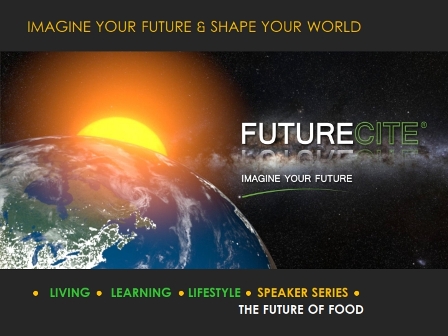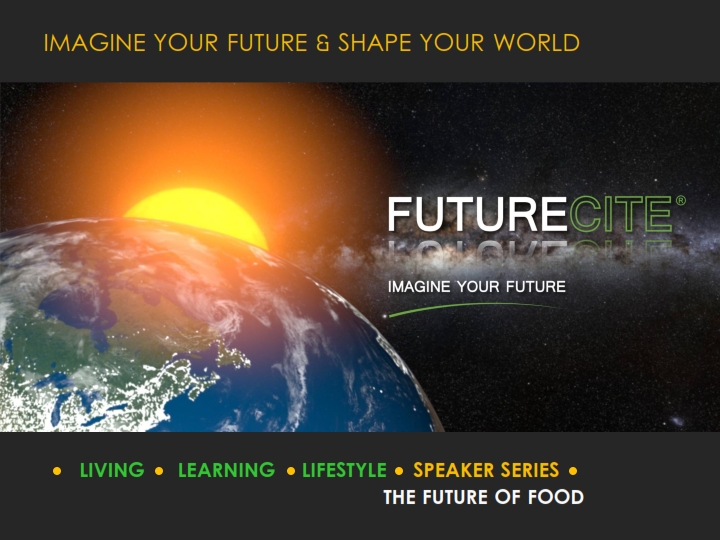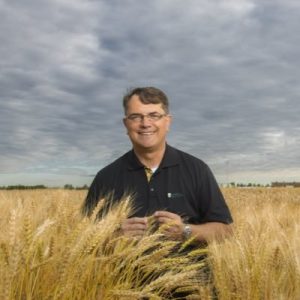
The global world as we know it now is changing faster than we can adapt economically, culturally and geopolitically. Throughout history, human creativity and ingenuity have played key roles in overcoming past economic and industrial disruptions and upheavals within their jurisdictional borders. This digital transformation however is different, as its impact and reach will be felt exponentially and simultaneously by the entire world – and will impact future Living, Learning and Lifestyles.

The focus of our FutureCite Speaker Series is to engage, citizens, communities, companies through live events and video presentations – to “Imagine how they can play a role in the direction and adoption of AI to shape their future Living, Learning and Lifestyles.
For the joint FutureCite & YPE event on May 28, 2019 at the Enbridge Centre in Edmonton Alberta, FutureCite identified topics on the impact of the digital transformation on future Living and Lifestyle, and curated the speakers. The three speakers from this event presented three different topics: The Future of Energy, The Future of Mobility and The Future of Food. These three edited presentations are posted in our FutureCite Speaker Series:
- William York, ATCO on The Future of Energy,
- Yeatland Wong, Stantec on The Future of Mobility and
- Dr. Stan Blade, University of Alberta on The Future of Food.
In this video on the Future of Food, Dr. Stan Blade, PhD, of the University of Alberta presents how AI is dramatically changing food production, processing, distribution, retail and the Lifestyle of its consumers. AI and sensors have become integrated in how future food will be grown and consumed – technologies from satellite imaging for GPS, to automated farming equipment in food production, to hydroponic vertical farming and niche urban farming. As well, there will be multiple sources of energy choices for food producers. Next generation of food producers will be looking at modernizing the farm, food production and processing, and how they approach retail and tap culinary venues – all without losing the values of why and what foods they produce, distribute and retail, and export to other markets.
The takeaway? So what foods will you be consuming in the future – dairy milk vs oat milk, or a meatless plant protein burger with no beef in it? The key point that viewers will take away with them is on how the agri-food industry will shift as key data information is digitized into global data information systems. By enabling producers globally to access real time information, food production will be more effectively aligned to meet shifting patterns of food demand globally. Key elements of an ideal integrated digital information system include consumer habits, market and supply demand, geoeconomics, geopolitics, weather, disruptive technologies and creative human talent.

About Dr. Stan Blade PhD
Dr. Blade is Dean of the Faculty of Agricultural, Life and Environmental Sciences (ALES) University of Alberta. Dr. Blade is a 2012 graduate of the Wharton Business School’s Executive Development Program (University of Pennsylvania) and his Ph.D. from Macdonald College of McGill University for plant breeding/cropping systems research completed at the International Institute of Tropical Agriculture (IITA). He currently serves as a Trustee of the International Institute of Tropical Agriculture, a board member of the Alberta Cancer Foundation, Edmonton Global, Livestock Gentec and the Alberta Biodiversity Monitoring Institute. In 2018 Dr. Blade was elected as an International Fellow of the Royal Swedish Academy of Agriculture and Forestry. Dr. Stan Blade was founding Chief Executive Officer (2008-2014) of Alberta Innovates Bio Solutions. he also served as the Deputy Director General (Research) for the IITA. ALES is focused on teaching, research and community service in its departments: Agriculture, Food and Nutritional Sciences; Renewable Resources; Human Ecology; Resource Economics and Environmental Sociology and the University of Alberta Botanic Garden.
About the University of Alberta
The Faculty Agricultural, Life and Environmental Sciences (ALES), University of Alberta, conducts a robust research program that provides solutions to global challenges in the areas of agriculture and food, the environment, community and individual well-being, and bio-resource innovation. The University of Alberta (also known as U of A and UAlberta) is a public research university located in Edmonton, Alberta, Canada. The University of Alberta is a major economic driver in Alberta with an impact on the Alberta economy at an estimated $12.3 billion annually, or five per cent of the province’s gross domestic product. 39,000 students from Canada and 150 other countries participate in 400 programs in 18 faculties.
About FutureCite Inc
FutureCite Inc launched FutureCite.com in 2018 as a way for Citizens, Communities and Companies to imagine, shape and navigate the digital transformation, and to enable them to prepare for the impact that it will have on their future Living, Learning and Lifestyle. Through FutureCite.com, an interactive digital hub, we provide a way for the 90% of Society to learn and share knowledge and experiences, accelerate discovery on ideas and innovations, and dialogue and collaborate to bridge the knowledge and skills gap arising from the digital transformation. FutureCite’s one-stop digital hub consists of 3 interconnected digital platforms:
1) Focus – a platform to learn and share knowledge and experiences through articles, blogs and images,
2) Flash – a platform to accelerate discovery and adoption of ideas and innovations through videos, short articles and images, and
3) Connect – a forum and private messaging platform to engage dialogue and collaborate on ideas, initiatives, or projects.
FutureCite.com also hosts the Canada150in150 e-Book.
About YPE
Young Professionals in Energy (YPE) is a non-profit organization which provides opportunities for networking, learning and career development, particularly for those with an interest in the global energy industry. The Edmonton chapter has been operating since 2014 and has organized many events and presentations from academics, senior government officials and prominent industry executives.




